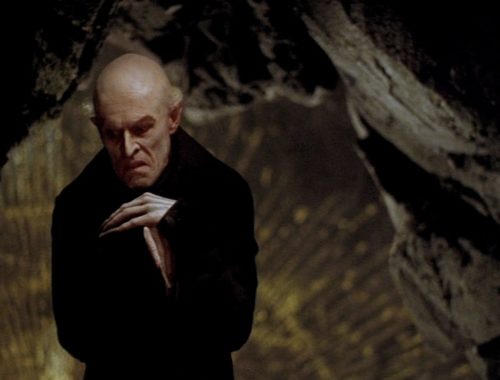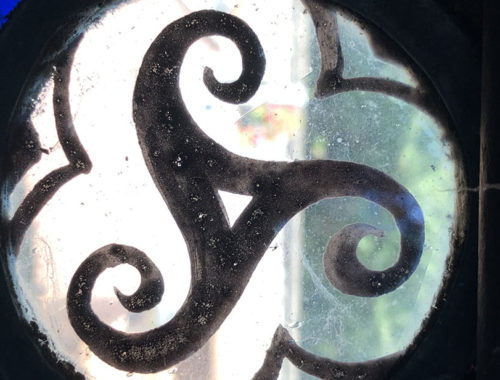Women Connecting to the God
Recently I was asked about ways for women to build a relationship with the Wiccan God. Many Women often naturally gravitate toward the Goddess, but the God can be more of a mystery. Before I dive into my answer, please bear in mind that no Wiccan perceives the gods the same way, and other Wiccans would answer this question differently.
Ultimately, how you interact with the God and Goddess will be determined by the relationship you build with them on your own. I know that sounds contrary; how can you build a relationship with a being you don’t know much about? Ours is an experiential religion, so although you can research the God, your real connection will be built by your work with him in ritual. I do understand, though, that a little research can give you clues to how you can begin to build that relationship.
Wicca hit American shores right around the time of the blossoming of the Feminist Movement, and women who felt excluded by the lack of feminine divine in the Abrahamic religions flocked to Wicca in droves. A result of this is that many of them wrote extensively about their experiences with the Goddess. Many of them went further than that and adopted her as a symbol of feminism. As a result, it’s easy to find writings about the Goddess in literature, poetry, feminist writings, and even political pieces.
The God is a bit more elusive. Although we Americans adopted him readily, he wasn’t held up as a beacon like the Goddess was. A female deity was a novelty, and a male one was not. The downside of that is that many people overlooked the God, assuming they already knew him. I think in modern Wicca the relationship with the God is often a missed opportunity.
So, researching and connecting with the God, in my opinion, should start at the beginning. And I want to be clear here that this is my opinion only, a result of my own experience and training, and certainly not gospel. Many, many Wiccans worship deities from all over the world in addition to the Wiccan God and Goddess. It’s not uncommon, for example, for Wiccans to work with Greek, Norse, or even Egyptian deities. But modern Wicca as we understand it was born in Britain, and it definitely taps into the energy of Britain and Western Europe, so I would start there unless you’re drawn elsewhere.
The God in Wicca is often represented as Herne the Hunter, a mythical figure in British folklore. To be clear, I’m not saying the God IS Herne, but they have a lot in common. Herne is often depicted as a man with stag horns. He is lord of the animals and king of the wildwood, a representation of fertility, and as a hunter (sometimes the leader of the Wild Hunt), he’s also associated with death. All of these things scare people and make them uncomfortable, so Herne is often found in liminal and/or wild, uncivilized places. You wouldn’t invite him to a tea party and expect your teacups to remain intact. In all these respects, he echoes the Wiccan God—both gentle and fierce, hunter and the one who cares for the animal world. Or the Wiccan God echoes him.
Another figure commonly associated with the Wiccan God is Cernunnos. In fact, Cernunnos may be used more often than Herne, and he and Herne are often interchanged, although they’re not really the same. Cernunnos is also a hunter and lord of the animals and is found in liminal spaces and the forest. He probably came to Britain from what is now Germany. The famous Gundestrup cauldron has an incredible image of Cernunnos in one of its panels.
Here are some books. Take any history you find in them with a huge grain of salt. Focus instead on the mythology and philosophy. Also, the bibliographies of any of these might be good sources for further exploration.
- Masks of Misrule: The Horned God and His Cult in Europe by Nigel Jackson is published by a small British press called Capall Bann. Nigel knows more about the folklore of the God in Europe, but his sentence structure is atrocious. There are a LOT of gems in there, though. Jumping off points. The god in interstitial spaces between long sentences. Appropriate to hunt for him.
- Another Capall Bann book, In Search of Herne the Hunter by Eric Fitch, goes deeply into the Herne mythos, including his connection to Cernunnos and Woden. Like Masks of Misrule, it has gems hidden in piles of creative sentence structure.
- Vivianne Crowley’s book Wicca: The Old Religion in the New Millennium has a chapter devoted to the God. If you are interested in that, I’d recommend reading the whole book. Vivianne has a particular philosophy about Wicca, and it makes more sense if you read the context.
- There’s also The Witches’ God by Janet and Stewart Farrar. This one is not my personal favorite—I don’t share the Farrars’ philosophy—but it might resonate with you.
This isn’t a book, but if you want to see a really cool but also very cheesy representation of Herne, check out the British Robin of Sherwood TV series from the ’80s (not the newer one), especially the first season. Herne is a major character in the story.
There are also Gerald Gardner’s books, Witchcraft Today and The Meaning of Witchcraft. Gardner is the founder of modern Wicca, and he connected with the God and Goddess in very profound ways. There’s a lot of rambling stuff in these books, but if you read between the lines a bit you get a sense of the God as Gardner perceived him. Since Gardner is responsible for us having Wicca at all, I’d say that merits a look.
Two other things to check out:
- The mythology of the Irish hero Lugh. Many Wiccans associate Lugh with the God, including Vivienne Crowley.
- The deeper myths of the Greek god Dionysus. Not English or Irish, but Dionysus has aspects that feel like our God. To me anyway.




